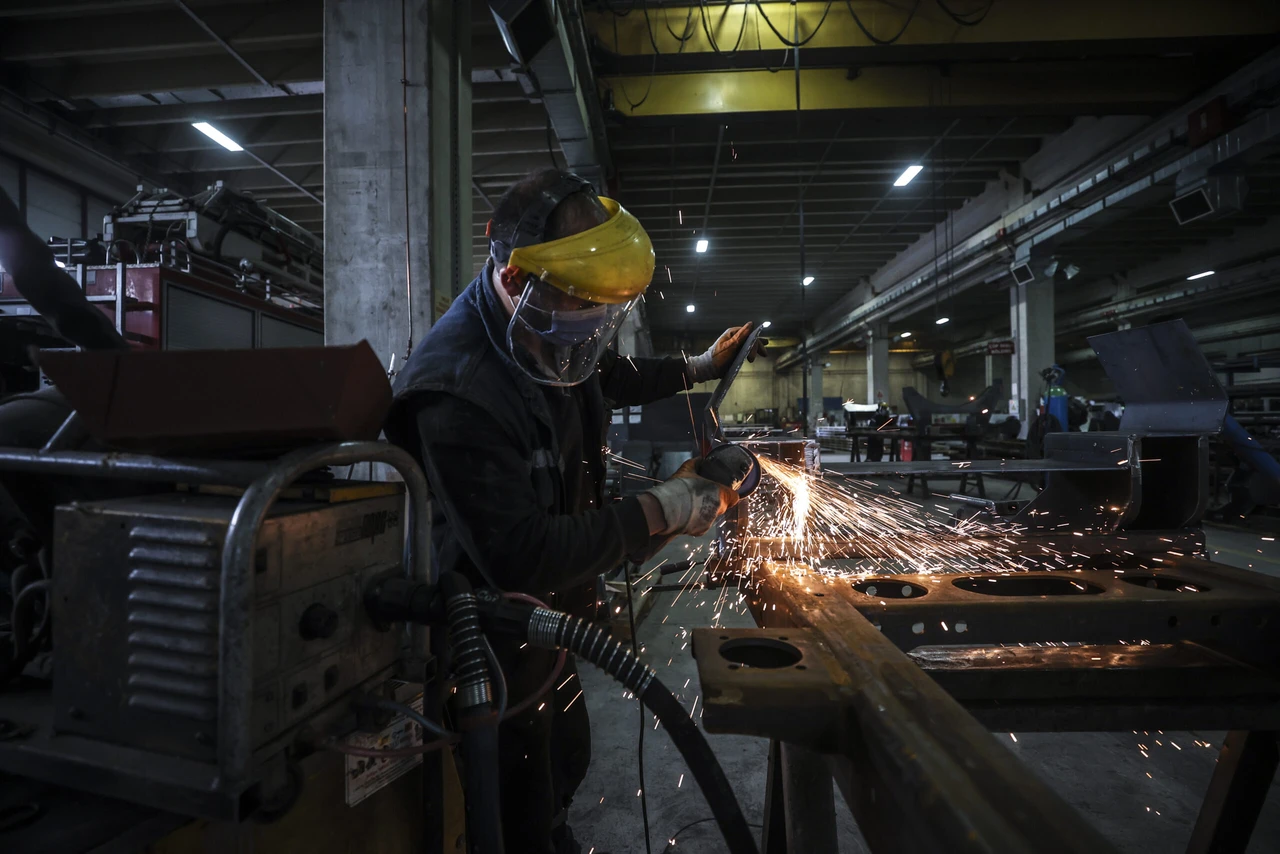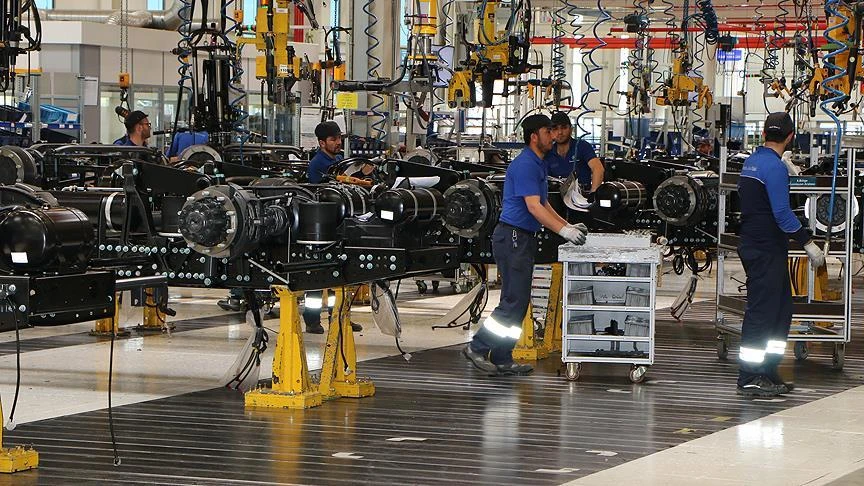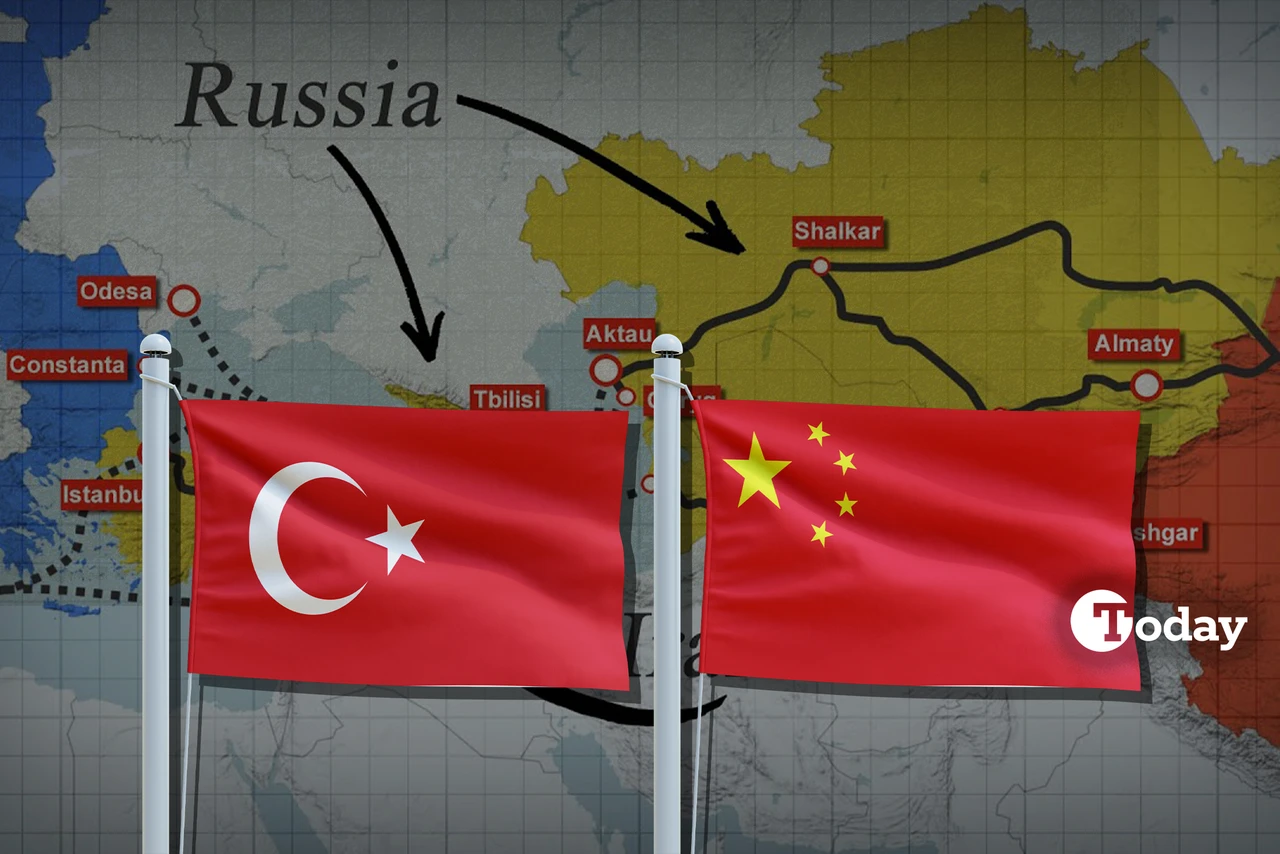Türkiye’s manufacturing sector faces rising headwinds in March, worst since October 2024
 A worker uses a grinding machine on a steel frame at a manufacturing facility in Ankara’s 1st Organized Industrial Zone, Türkiye, Jun.. 12, 2021. (AA Photo)
A worker uses a grinding machine on a steel frame at a manufacturing facility in Ankara’s 1st Organized Industrial Zone, Türkiye, Jun.. 12, 2021. (AA Photo)
The Istanbul Chamber of Industry (ISO) reported Wednesday that Türkiye’s Manufacturing Purchasing Managers’ Index (PMI) fell to 47.3 in March, down from 48.3 in February, marking the sharpest decline since October 2024 and extending the slowdown in output to one full year.
The Purchasing Managers’ Index (PMI) is a key economic indicator that measures the health of a country’s manufacturing sector.
It is based on monthly surveys of senior executives at manufacturing companies and reflects changes in new orders, production, employment, suppliers’ delivery times, and stock levels of purchases.
According to the PMI survey—where figures above the neutral 50 threshold signal growth—respondents attributed the contraction to challenging market conditions, which significantly slowed new orders and negatively impacted production.
Manufacturers reported a decline in employment for the fourth consecutive month in March, although the pace of reduction remained modest and was the slowest recorded since December.
Purchasing activity also decelerated, while input and finished goods inventories remained broadly unchanged.
The stabilization in finished goods inventories ended a 10-month trend of consistent decline.

Weaker demand for inputs allowed suppliers to speed up deliveries, with lead times shortening for the first time in six months and at the fastest rate since December 2022.
Input costs surged sharply, primarily because of the continued depreciation of the Turkish lira, however, the pace of inflation eased to a three-month low. Output price inflation also slowed, marking the lowest rate since the beginning of the year.
Worst output performance since COVID-19
According to the report, the number of sectors expanding output rose from two in February to four in March among the ten industries monitored by the survey. The food products sector maintained its position as the fastest-growing segment, supported by robust output growth.
Production also picked up in the wood and paper products, non-metallic mineral products, and land and marine vehicles sectors.
Conversely, the chemical, plastic, and rubber products sector recorded the steepest decline in output, reaching its worst performance since April 2020.
Despite early signs of recovery in overall output, new orders rose in only two sectors: food products and wood and paper products. The sharpest slowdown in new orders occurred in the basic metals sector, which saw the most significant loss of momentum since October 2018, excluding the COVID-19 period.
Similarly, new export orders weakened in eight out of ten sectors. In line with the production outlook, the number of sectors with increasing employment rose to four in March.
Most sectors continued to scale back purchasing activity, and subdued input demand further supported faster supplier delivery times.
‘Inflationary pressures remain strong’
Commenting on the index, Andrew Harker, economics director at S&P Global Market Intelligence, said persistent challenges in both domestic and international markets have made it difficult for Turkish firms to secure new orders, leading to continued slowdowns in production and new business.
“Lower demand pressures allowed suppliers to accelerate delivery times at the fastest rate since December 2022. However, inflationary pressures remained strong due to the ongoing weakness of the lira,” Harker noted.



